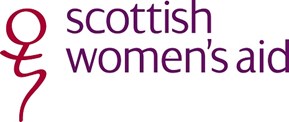Books – Real Women: Unheard Stories – Shakti Women’s Aid
Police Scotland receives a call about domestic abuse every 9 minutes. One in four women will experience domestic abuse at some point in her life.
For ethnic minority women, things are made even worse by the special complications of their situation. Abuse for them may come not only from a partner or ex-partner but also from members of their extended family and community, the so-called ‘honour abuse’. In addition, some may be subjected to forced marriage or female genital mutilation.
‘My Dad used to beat my mother. I didn’t realise it was domestic abuse – I thought it was a lifestyle.’
Shehnaaz (not her real name) grew up as an Indian slum dweller. Her family was poor and very traditional. Men were powerful, women were treated like slaves; girls did not receive any schooling, and as the grew up they were expected to cook, clean and have babies. If the family had chicken to eat, Shehnaaz’s mother gave all the best parts to the men. Shehnaaz thought this was normal.
‘As human beings we are powerful and resilient and we can move forward.’ (Anila Mirza, Shakti Women’s Aid)
Shehnaaz and her three sisters were sponsored to attend a Loretto Missionary School, from which she eventually came to Edinburgh to study. She married a man from the Hindu religion, but soon discovered that her husband was violent. He tortured and abused Shehnaaz, causing her to suffer several miscarriages, but she was frightened to tell anyone. She had no papers giving her a legal right to remain in the UK, and she could not return to India because her secret, mixed-religion marriage would being shame on her extended family (‘They don’t want their daughters to get ideas.’) Shehnaaz became suicidal. She turned to Shakti for help.
Shakti (the name means ‘the strength and power of women’) was established 32 years ago. The charity works with women and children from minority ethnic and black communities who are suffering domestic abuse. These women often don’t seek help from mainstream organisations because they feel that their particular issues are not understood.
Shakti has staff members who between them speak 18 different languages (including Polish, Mandarin, Swahili, Arabic, Urdu and Spanish), working in Edinburgh and the Lothians, Fife, Dundee and the Forth Valley. It also has a specialist children’s service. The charity’s aims are to;
- Listen to what a woman says.
- Help her to be as safe as possible.
- Explain her options and her rights.
- Help her decide what to do (if anything).
- Help her feel stronger in herself.
- Tell her about other help she can get.
- Help her get support for her children.
- Give her practical help: for example to find somewhere safe to stay or to get a solicitor or health care; or legal protection; or to apply for benefits (money) she is due.
- If a woman needs to leave the area/community she lives in, Shakti has links with Women’s Aid all over the UK. The charity comes under the umbrella of Scottish Women’s Aid, and also works with Southall Black Sisters to take its issues to Westminster. Politicians in Holyrood are, says Anila Mirza, Shakti Team Leader, more sympathetic, but only Westminster has the power to make the changes they seek.
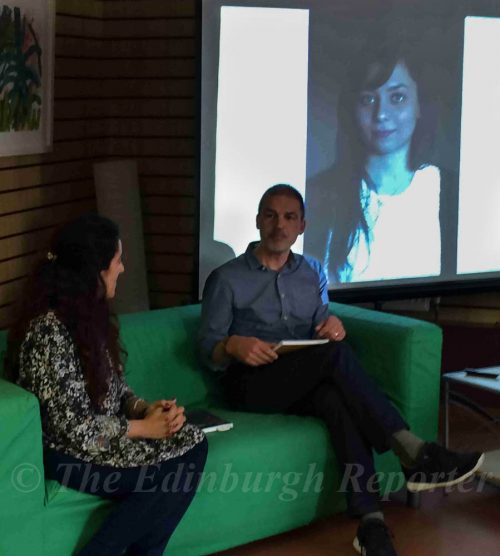
Speaking at the Portobello Book Festival last month, Anila explained that she felt that the voices of abused BME women and children were not being heard; many people were simply not aware that domestic abuse was happening here in Scotland. Even professionals in some of the agencies Shakti works with had difficulty in understanding how hard it often is for BME women to leave an abusive environment.
Two years ago, Anila came up with the idea of writing a book to record women’s lived experiences, a book that would both show the complexity of the issues BME women face and their resilience and strength, their wish to move on with their lives. She approached Peter E Ross, a photographer, videographer and Community Arts Worker for the MECOPP Gypsy/Traveller Carers Project. who has had over 20 years’ experience in facilitating exhibitions, producing videos and working with community members to challenge stereotypes and discrimination. Peter:
‘I felt honoured to be asked. The women were very brave. At every step I was waiting for Anila to say that Shakti had decided they needed to work with a woman instead of me.’
But Anila had not only been impressed by Peter’s work, she also knew that Shakti’s clients lacked any positive male role models for their children;
‘I decided Peter would be fantastic…it worked really well. Both my colleagues and our clients were open to him. Feminism is about equality, and equality is the responsibility of men and women. Peter is an excellent example.’
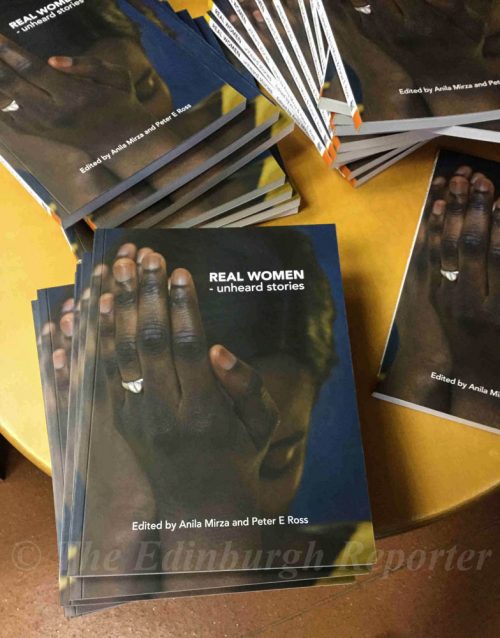
And so the book, Real Women: Unheard Stories, was born. Peter acted as the book’s editor and designer, taking most of the photos – though he insists Anila should take most of the credit;
‘I was struck by the number of women who did agree to stand in front of the camera, and who did so proudly and unashamedly. Many were smiling, and their smiles were saying ‘your life is not over because of these things that have happened to you.’ The book was a collaborative process, the women were very brave and we discussed how they wanted to tell their stories.’
Once Anila and Peter started to interview women in BME communities, the floodgates opened. There was so much material that they found themselves having to to edit it drastically to fit it into the book. What’s more, Anila discovered that many of her co-workers at Shakti had stories of their own to tell;
‘I did not know their stories. When you are busy with crisis management you don’t know the real women. The emotional content of the workers’ stories is just as powerful as those of the people who have come to them.’
Real Women, Unheard Stories was produced without a publisher or a distributor, yet of the 500 copies printed, only 128 remain to be sold. Anila and Peter are now hoping to produce an ebook. The sale proceeds will go to help women like Shehnaaz whose immigration status is ‘No recourse to public funds’ – if they are placed in this category by the Home Office they are unable to access benefits or obtain any financial support from the state. Many women do not even have the means to buy sanitary protection. When Shehnaaz was miscarrying she had to use pillowcases.
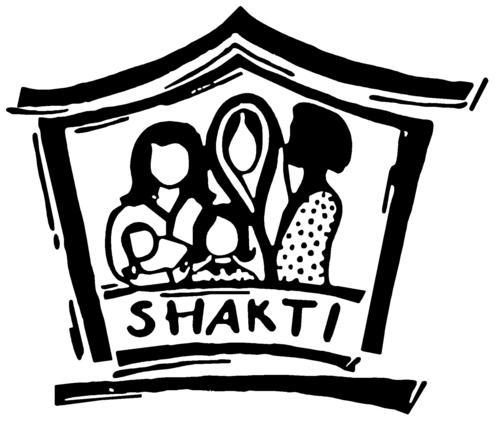
She said : “I have lost everything, but when I went to Shakti they helped me to find a social worker, to get me some support so that I could escape my violent relationship. I am still struggling with the immigration authorities, but now I live for my daughter. I used to work for a large organisation, but I had no papers. I would like to study, but I am ineligible for any financial support, so I attend Shakti’s drama group and also Edinburgh Women’s Group. Shakti gives me emotional support too, it is like a family for me, a tree protecting us as we sit under it. Now I share my story because I don’t want other women to suffer as I have done.”
Anila emphasises that, for Shakti, prevention – largely through education – is just as important as support. Domestic abuse is one of the three main causes of homelessness; the waiting time for accommodation in Edinburgh is a minimum of 18 months, and some abused women are put into temporary accommodation with so many other issues that they end up returning to their dangerous homes. The causes of abuse are complex (and Shakti fully acknowledges that abuse doesn’t just affect women); poverty, unemployment and poor housing can all lead to a lack of self-respect and respect for others. Gender inequality is still rife throughout all levels of society.
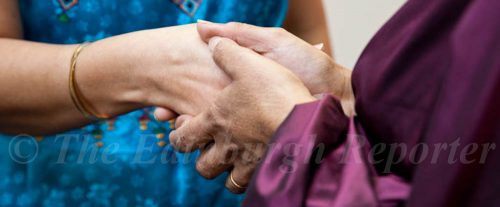
Shakti runs training sessions for practitioners and tries to take its message to the wider community, but it needs more representatives, people who can act as ambassadors for the organisation. Education needs to start at a very young age; when a researcher asked some young boys when they thought it was OK to hit their partner, ‘when she’s had an affair’ was the response. Men, says Peter, need to stand up and speak up, they need to tell other men – and show young boys – that their behaviour is not acceptable. Shehnaaz:
‘When you’ve experienced abuse in any way, you are in fear, you’ve lost trust, your confidence and somehow faith in humanity, but Shakti helped me mend my crushed spirit.’
Real Women: Unheard Stories is available at the price of £10.99 (+p & p) from Shakti, who can be contacted as follows:
By telephone: Edinburgh: 0131 475 2399; Fife: 01383 732 289; Dundee: 01382 207 095
Email: info@shaktiedinburgh.co.uk
Post: Shakti Women’s Aid, 57 Albion Road, Edinburgh EH7 5QY
Or by completing the form on the Shakti website. The website also offers information and advice.
Edinburgh Women’s Aid can be contacted on 0131 315 8110 or by emailing info@edinwomensaid.co.uk.


